| Listing 1 - 10 of 63 | << page >> |
Sort by
|
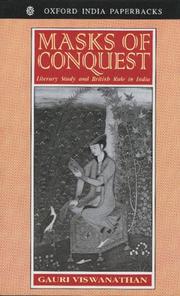
ISBN: 0195646401 9780195646405 Year: 1998 Publisher: Delhi: Oxford university press,
Abstract | Keywords | Export | Availability | Bookmark
 Loading...
Loading...Choose an application
- Reference Manager
- EndNote
- RefWorks (Direct export to RefWorks)
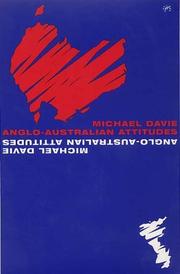
ISBN: 071266727X Year: 2001 Publisher: New York, NY : Random House,
Abstract | Keywords | Export | Availability | Bookmark
 Loading...
Loading...Choose an application
- Reference Manager
- EndNote
- RefWorks (Direct export to RefWorks)
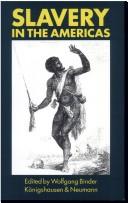
ISBN: 3884797131 Year: 1993 Publisher: Würzburg : Königshausen & Neumann,
Abstract | Keywords | Export | Availability | Bookmark
 Loading...
Loading...Choose an application
- Reference Manager
- EndNote
- RefWorks (Direct export to RefWorks)
SLAVERY --- U.S. --- COLONIAL STUDIES
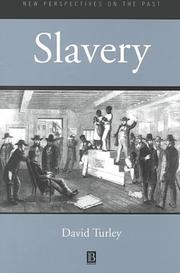
ISBN: 0631167315 0631167293 Year: 2000 Volume: *1 Publisher: Oxford Malden Blackwell
Abstract | Keywords | Export | Availability | Bookmark
 Loading...
Loading...Choose an application
- Reference Manager
- EndNote
- RefWorks (Direct export to RefWorks)
Slavery --- History --- Cross-cultural studies --- Colonial studies
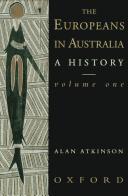
ISBN: 019553641X Year: 1997 Publisher: Oxford [etc.] : Oxford University Press,
Abstract | Keywords | Export | Availability | Bookmark
 Loading...
Loading...Choose an application
- Reference Manager
- EndNote
- RefWorks (Direct export to RefWorks)
AUSTRALIA --- AUSTRALIAN STUDIES --- COLONIAL STUDIES --- HISTORY
Periodical
Abstract | Keywords | Export | Availability | Bookmark
 Loading...
Loading...Choose an application
- Reference Manager
- EndNote
- RefWorks (Direct export to RefWorks)
post-colonial studies --- francophone literature --- anglophone literature --- post-colonial perspectives
Book

ISBN: 3110733196 3110738090 Year: 2022 Publisher: Berlin ; Boston : De Gruyter,
Abstract | Keywords | Export | Availability | Bookmark
 Loading...
Loading...Choose an application
- Reference Manager
- EndNote
- RefWorks (Direct export to RefWorks)
As far too many intellectual histories and theoretical contributions from the ‘global South’ remain under-explored, this volume works towards redressing such imbalance. Experienced authors, from the regions concerned, along different disciplinary lines, and with a focus on different historical timeframes, sketch out their perspectives of envisaged transformations. This includes specific case studies and reflexive accounts from African, South Asian, and Middle Eastern contexts. Taking a critical stance on the ongoing dominance of Eurocentrism in academia, the authors present their contributions in relation to current decolonial challenges. Hereby, they consider intellectual, practical and structural aspects and dimensions, to mark and build their respective positions. From their particular vantage points of (trans)disciplinary and transregional engagement, they sketch out potential pathways for addressing the unfinished business of conceptual decolonization. The specific individual positionalities of the contributors, which are shaped by location and regional perspective as much as in disciplinary, biographical, linguistic, religious, and other terms, are hereby kept in view. Drawing on their significant experiences and insights gained in both the global north and global south, the contributors offer original and innovative models of engagement and theorizing frames that seek to restore and critically engage with intellectual practices from particular regions and transregional contexts in Africa, South Asia, and the Middle East. This volume builds on a lecture series held at ZMO in the winter 2019-2020
RELIGION / Islam / History. --- Decolonialism. --- Humanities. --- Social Sciences. --- post-colonial studies.
Book
ISBN: 9781905510177 Year: 2008 Publisher: Nottingham : CCCP (Critical, Cultural and Communications Press),
Abstract | Keywords | Export | Availability | Bookmark
 Loading...
Loading...Choose an application
- Reference Manager
- EndNote
- RefWorks (Direct export to RefWorks)
The rationale behind this collection of essays is provided by the Saidian notion of the intellectual as a political activist, a cultural interpreter, and a traveller through cultures and worldviews. As the title of the book suggests, being an academic today entails working in the ethical/political field of education and writing (in the sense of doing research and disseminating knowledge) with the sense of being in the world and having a project for tomorrow in mind: a future of beneficial dialogical encounters, critical awareness, and mutual understanding. The key notion of encounter—physical, intellectual, cultural—necessarily permeates the intellectual’s interest in socio-cultural phenomena and transformations, and also the work of this volume’s contributors. The contributions deal with English, Black-British, North-American, Caribbean, and African literatures and cultures, and postcolonial theory and writing. Their main temporal focus is on the present: they are variously concerned with the here and now, as they analyse complex representations of culture in specific geographic and historical contexts. Special attention to ongoing processes of identity formation and to power relations between hegemonic and marginal discourses and positions is found throughout the collection, so that interesting reading paths across cultural borders can be followed. This collection is offered as a festschrift on the occasion of Itala Vivan’s retirement from her position as Professor of English Literature and Postcolonial and Cultural Studies at the University of Milan, Italy, and it wishes to celebrate her intense scholarly activity, always carried out with the future in mind.
Book
ISBN: 9780230521636 Year: 2008 Publisher: Basingstoke New York : Palgrave Macmillan,
Abstract | Keywords | Export | Availability | Bookmark
 Loading...
Loading...Choose an application
- Reference Manager
- EndNote
- RefWorks (Direct export to RefWorks)
Postcolonial Theory and Psychoanalysis answers questions through a critical examination of the work of critics such as Fanon, Nandy, Bhabha, Deleuze and Guattari. It includes a consideration of key works by each critic, explores their broader reasons for using psychoanalysis in terms of their own theoretical projects as well as in relation to each other and discusses the problems that follow. Greedharry's book offers students and researchers alike a clear account of why psychoanalysis has been an important method for postcolonial scholarship as well as suggestions about how we might move forward from psychoanalytic readings of the colony
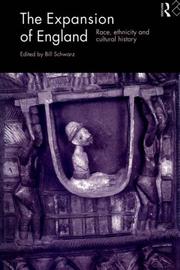

ISBN: 9780415060264 Year: 1996 Publisher: London New-York : Routledge,
Abstract | Keywords | Export | Availability | Bookmark
 Loading...
Loading...Choose an application
- Reference Manager
- EndNote
- RefWorks (Direct export to RefWorks)
The organized study of history began in Britain when the Empire was at its height. Belief in the destiny of imperial England profoundly shaped the imagination of the first generation of professional historians. But with the Empire ended, do these mental habits still haunt historical explanation? Drawing on postcolonial theory in a lively mix of historical and theoretical chapters, The Expansion of England explores the history of the British Empire and the practice of historical enquiry itself. There are essays on Asia, Australasia, the West Indies, South Africa and Britain. Examining the sexual, racial and ethnic identities shaping the experiences of English men and women in the nineteenth century, the authors argue that habits of thought forged in the Empire still give meaning to English identities today.
GRANDE-BRETAGNE --- ETUDES POSTCOLONIALES = POST COLONIAL STUDIES --- COLONIES --- HISTOIRE
| Listing 1 - 10 of 63 | << page >> |
Sort by
|

 Search
Search Feedback
Feedback About UniCat
About UniCat  Help
Help News
News